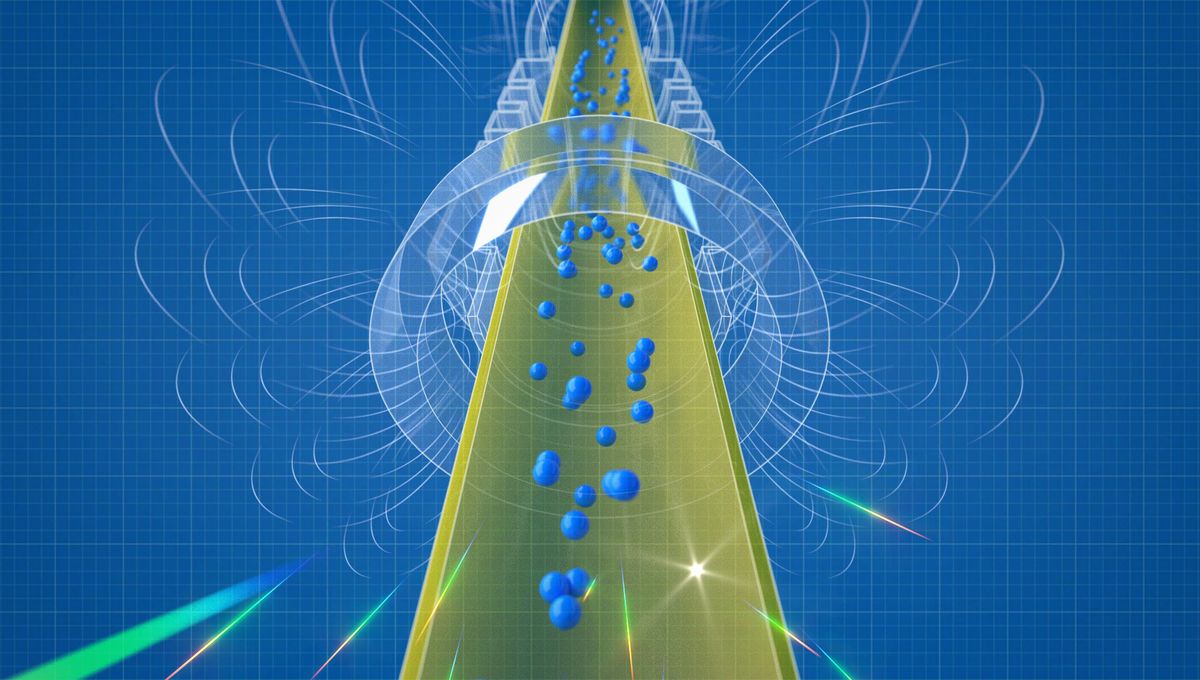
Researchers have been wondering how antimatter, the mirrored version of the matter that makes us, would behave under gravity. Antiparticles have the same mass as their respective particles but the opposite charge. Would they fall down in a gravitational field?
After laborious efforts, scientists from the ALPHA collaboration at CERN with the support of many other institutions around the world can say for sure that antimatter and regular matter are gravitationally attracted.
There is very little antimatter in the universe and it is difficult to study. When antimatter encounters matter, the particles involved turn into a big flash of light. But when the universe started, the amount of matter and antimatter should have been the same. Something must have given matter the edge on antimatter.
The ALPHA collaboration is trying to answer that question. And this incredible new result tells us that one explanation doesn’t work anymore. The idea that gravitational repulsion is the reason why antimatter is almost gone from the observable universe no longer makes sense.
“In physics, you don’t really know something until you observe it,” ALPHA spokesperson Jeffrey Hangst, said in a statement. “This is the first direct experiment to actually observe a gravitational effect on the motion of antimatter. It’s a milestone in the study of antimatter, which still mystifies us due to its apparent absence in the universe.”
The ALPHA experiment was started in 2013 to study antimatter like never before. It merges antiprotons created in the CERN antimatter factory’s AD and ELENA machines and binds them with positrons (the antielectron) from a radioactive sodium-22, which naturally produces them. Putting them together creates antihydrogen, which is slightly magnetic and can be trapped in a magnetic trap so it doesn’t annihilate anything.
A lot of the experiments done by ALPHA are simply about the properties of these anti-atoms. But in 2018, they started ALPHA-g, which is vertically shaped and can follow the motion of the antihydrogen. They used seven groups of about 100 anti-atoms. This might not seem like much, but antimatter is difficult to make and definitely the most expensive substance we have ever produced.
And those 700 atoms were enough to study the behavior to a reasonable degree. They found that the acceleration of gravity on antihydrogen was the same as regular hydrogen.
“It has taken us 30 years to learn how to make this anti-atom, to hold on to it, and to control it well enough that we could actually drop it in a way that it would be sensitive to the force of gravity,” added Hangst.
“The next step is to measure the acceleration as precisely as we can. We want to test whether matter and antimatter do indeed fall in the same way. Laser-cooling of antihydrogen atoms, which we first demonstrated in ALPHA-2 and will implement in ALPHA-g when we return to it in 2024, is expected to have a significant impact on the precision.”
The study is published in the journal Nature.
Source Link: Antimatter Definitely Goes Down With Gravity, Just Like Regular Matter